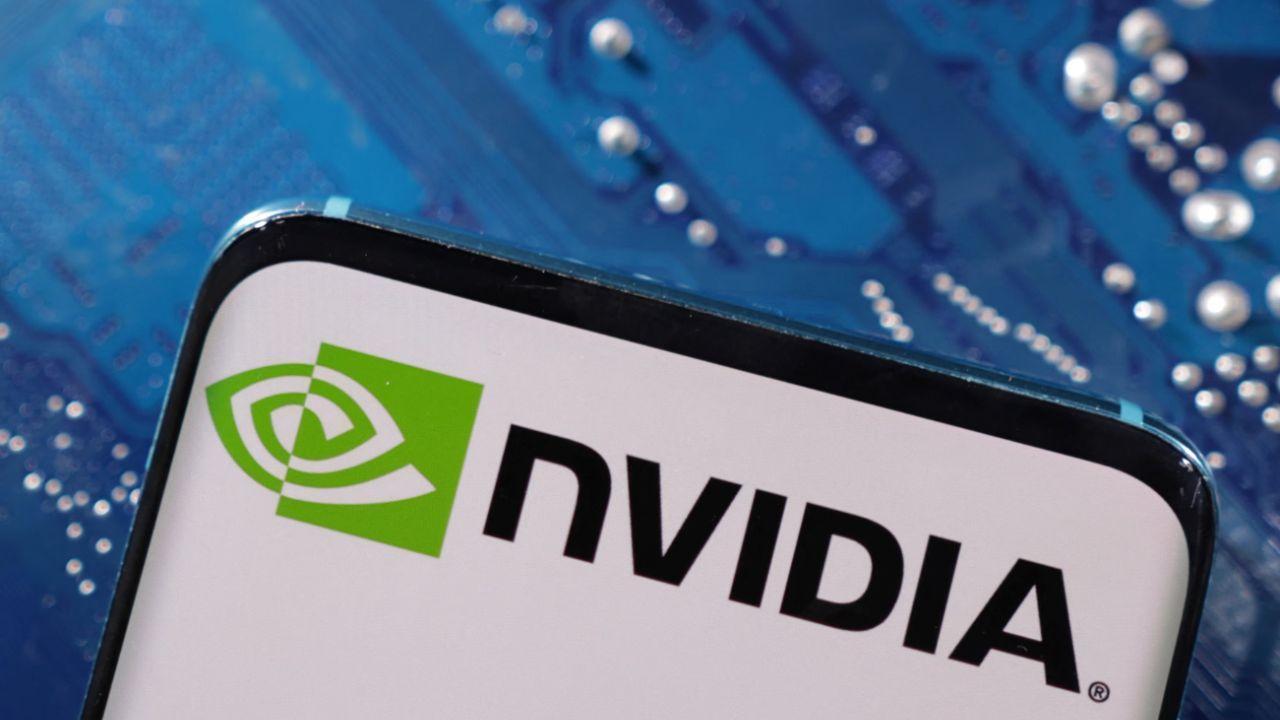
Post by : Priya
Photo:Reuters
A New Challenge for the Chip Giant
In recent years, Nvidia has become one of the most powerful names in the global technology industry. Known for producing high-performance chips used in computers, data centers, self-driving cars, and many other advanced technologies, Nvidia has played a central role in the digital age. But now, the company is facing a new and serious challenge — one that has little to do with technology itself and everything to do with global trade, raw materials, and politics.
The focus of this new issue is rare earth materials. These special minerals are essential for making the chips and electronic parts that power everything from smartphones to satellites. Most of the world's supply of rare earth materials comes from a few countries, and China controls the majority of it. As international discussions about trade and material access grow more intense, Nvidia’s chip sales are directly at risk.
Understanding Rare Earth Materials
Rare earth materials are a group of 17 metals found in the Earth’s crust. Despite the name, they are not actually “rare” in quantity — but they are hard to mine, expensive to process, and unevenly spread across the globe. Some of the most important rare earth elements for the tech industry include:
These minerals are used in magnets, batteries, screens, and chip production. Without them, companies like Nvidia cannot make the powerful chips that are now in demand worldwide.
Why Nvidia Needs Rare Earth Materials
Nvidia’s high-performance chips are designed to handle large amounts of data, perform heavy computing tasks, and support advanced technologies. These chips are used in many industries:
To make these chips work well, manufacturers use rare earth materials during production. These materials help in making circuits faster, reducing heat, and improving the performance of the chip.
In other words, Nvidia’s ability to make world-class chips depends directly on access to rare earth supplies.
The Global Supply Chain and China's Role
China currently controls around 60–70% of global rare earth production and over 85% of its processing. This gives it enormous influence over the supply chain. Other major sources include Australia, the United States, and some African nations, but none of them come close to China’s scale or speed.
In recent years, China has been using its dominance in rare earths as a tool in trade discussions. In 2010, China temporarily restricted exports to Japan during a territorial dispute, and since then, it has used its position carefully to manage its global relations.
Today, as the United States and its allies try to reduce their reliance on Chinese materials, tensions have grown again. This has placed companies like Nvidia in the middle of a much larger geopolitical game.
How Trade Talks Are Affecting Nvidia
Recent trade talks between the United States and China have included discussions on how rare earth exports are handled. U.S. officials have shown concern about being too dependent on Chinese rare earths. In response, China has hinted at possibly limiting the export of certain materials to U.S. companies — especially those used in high-tech equipment.
Although no final decision has been made yet, just the idea of new restrictions has already caused concern in global markets. Tech companies are watching closely, and investors are nervous about what this might mean for production timelines and costs.
For Nvidia, the stakes are high. Any disruption in the supply of these materials could cause delays in chip production. That would affect sales, partnerships, and delivery of products around the world.
Economic Impact: What’s at Risk
If Nvidia’s access to rare earth materials is reduced, the company could face:
Production delays due to missing key components
Increased costs from finding new suppliers or processing materials differently
Decreased sales if products are not delivered on time
Investor losses due to stock market reactions
Customer frustration if orders are delayed or prices rise
Other companies that depend on Nvidia’s chips — such as automakers, electronics firms, and data center operators — could also feel the impact. A slowdown in chip production could cause a ripple effect across several industries.
Search for New Sources
In response to this issue, several governments and companies are working to find new sources of rare earths. Countries like Australia and Canada are increasing their mining operations. The U.S. is trying to re-start domestic mining efforts, though this process is slow and costly.
Some companies are also investing in recycling programs, where old electronics are broken down and rare earths are recovered. This is still a small part of the supply, but it is growing.
Meanwhile, technology firms are exploring alternative materials and new designs that use fewer rare earth elements. But again, these efforts are long-term and cannot replace current supplies right away.
Environmental and Ethical Concerns
Mining rare earth materials is not only expensive — it’s also damaging to the environment. The process involves large amounts of water, toxic chemicals, and waste. In some regions, poor regulation has caused pollution and health issues for nearby communities.
This has raised ethical concerns about how and where materials are sourced. There is growing pressure on companies like Nvidia to ensure their suppliers follow clean, fair practices. Some investors and customers now demand greater transparency in sourcing policies.
As demand grows, companies must strike a balance between increasing supply and protecting the environment.
What Governments Are Doing
Governments around the world are now treating rare earth materials as strategic resources. The U.S. government has passed new laws to support local mining and reduce dependence on foreign sources. Europe is creating partnerships with African countries to increase their rare earth production.
There are also calls to create a shared reserve of rare earths among allied countries, similar to oil reserves, so that chip production can continue even if trade disruptions occur.
China, for its part, is reviewing its export policies and considering whether to limit sales of certain rare earths to other countries. This decision would likely affect not only Nvidia, but other major tech firms as well.
Tech and Politics
The issue of rare earth materials is not just a business problem — it is also a political one. The ability to control these materials gives countries power in global trade. It affects who leads in technology, who controls important infrastructure, and who stays ahead in military and security tools.
Nvidia, like many companies, is caught in the middle. It must continue to deliver strong results, while also managing supply risks and political pressures.
What the Future Might Look Like
Nvidia chip sales










Tabreed and Johnson Controls Partner to Launch Advanced Cooling Tech
Tabreed joins Johnson Controls to improve energy efficiency and eco-friendly district cooling in the

Nissan Develops Advanced Self-Driving Cars for City Streets by 2027
Nissan is testing smart self-driving cars that can handle city traffic, pedestrians, and red lights

PM Modi Supports Local Entrepreneurs in Arunachal
PM Modi interacts with Arunachal entrepreneurs, reviews local products, and highlights GST reforms a

India-U.S. Talks Jaishankar to Meet Rubio During UNGA 2025
India’s External Affairs Minister Jaishankar will meet U.S. Secretary Rubio in New York to discuss t

Abu Dhabi Parks Transform Into Outdoor Learning Hubs
Abu Dhabi parks now serve as open-air classrooms, teaching students about nature, sustainability, an

UAE signs audit deals with Seychelles and Uganda to boost oversight
UAE strengthens global audit ties with Seychelles and Uganda to share expertise, enhance transparenc